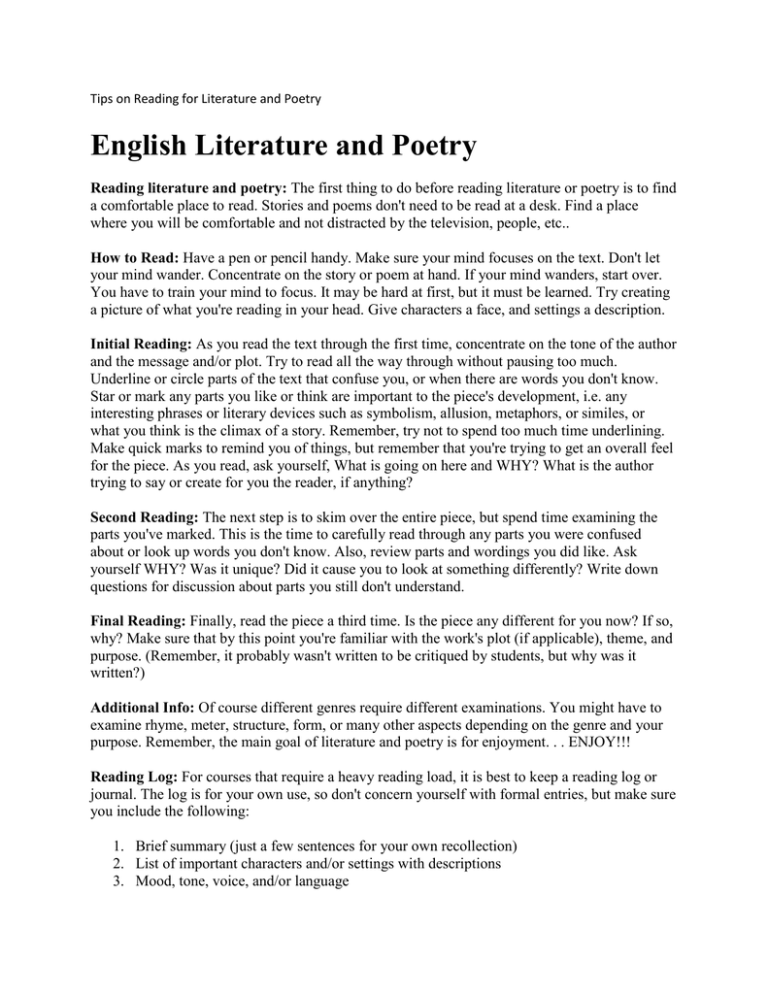Reading Literature & Poetry: Effective Reading Tips
advertisement

Tips on Reading for Literature and Poetry English Literature and Poetry Reading literature and poetry: The first thing to do before reading literature or poetry is to find a comfortable place to read. Stories and poems don't need to be read at a desk. Find a place where you will be comfortable and not distracted by the television, people, etc.. How to Read: Have a pen or pencil handy. Make sure your mind focuses on the text. Don't let your mind wander. Concentrate on the story or poem at hand. If your mind wanders, start over. You have to train your mind to focus. It may be hard at first, but it must be learned. Try creating a picture of what you're reading in your head. Give characters a face, and settings a description. Initial Reading: As you read the text through the first time, concentrate on the tone of the author and the message and/or plot. Try to read all the way through without pausing too much. Underline or circle parts of the text that confuse you, or when there are words you don't know. Star or mark any parts you like or think are important to the piece's development, i.e. any interesting phrases or literary devices such as symbolism, allusion, metaphors, or similes, or what you think is the climax of a story. Remember, try not to spend too much time underlining. Make quick marks to remind you of things, but remember that you're trying to get an overall feel for the piece. As you read, ask yourself, What is going on here and WHY? What is the author trying to say or create for you the reader, if anything? Second Reading: The next step is to skim over the entire piece, but spend time examining the parts you've marked. This is the time to carefully read through any parts you were confused about or look up words you don't know. Also, review parts and wordings you did like. Ask yourself WHY? Was it unique? Did it cause you to look at something differently? Write down questions for discussion about parts you still don't understand. Final Reading: Finally, read the piece a third time. Is the piece any different for you now? If so, why? Make sure that by this point you're familiar with the work's plot (if applicable), theme, and purpose. (Remember, it probably wasn't written to be critiqued by students, but why was it written?) Additional Info: Of course different genres require different examinations. You might have to examine rhyme, meter, structure, form, or many other aspects depending on the genre and your purpose. Remember, the main goal of literature and poetry is for enjoyment. . . ENJOY!!! Reading Log: For courses that require a heavy reading load, it is best to keep a reading log or journal. The log is for your own use, so don't concern yourself with formal entries, but make sure you include the following: 1. Brief summary (just a few sentences for your own recollection) 2. List of important characters and/or settings with descriptions 3. Mood, tone, voice, and/or language 4. Main ideas, themes, morals, or purpose 5. Strengths or weaknesses 6. Personal opinions (what you liked or didn't like and why?) © 2010 University of Hartford, 200 Bloomfield Avenue, West Hartford, CT 06117 | 860.768.4100



